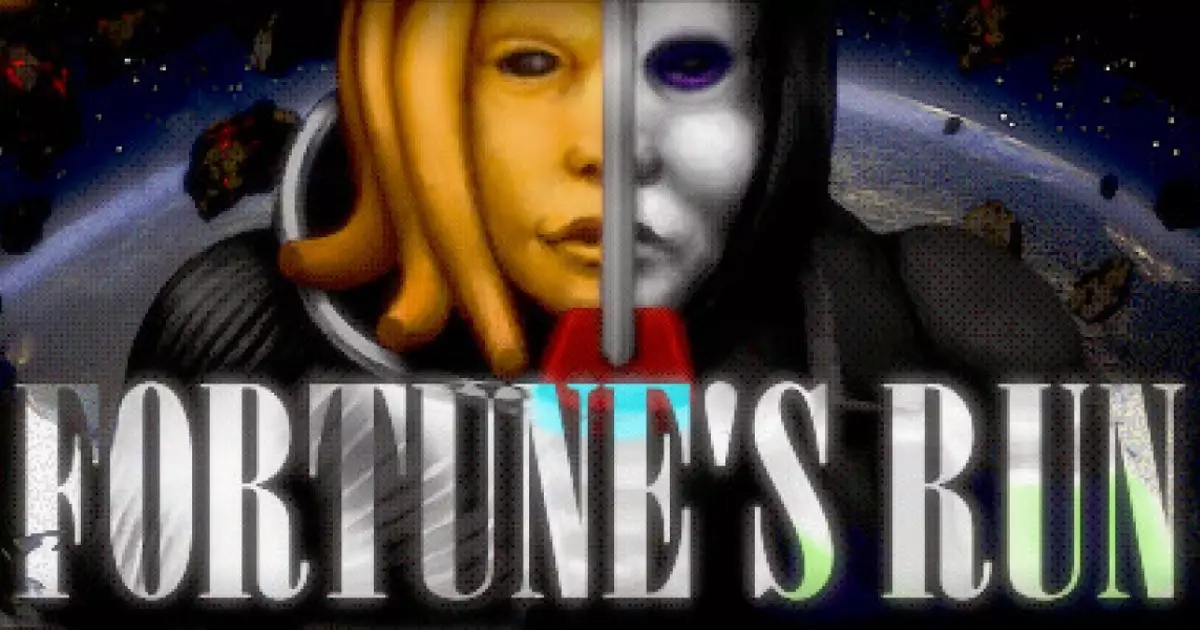The world of independent game development is often riddled with unpredictable challenges, but the recent news surrounding **Fortune’s Run** has sent shockwaves throughout the gaming community. The game’s lead developer, known as Dizzie, announced on a Steam post that the sole project will enter a hiatus as they prepare to serve a three-year prison sentence related to a “violent crime.” This situation has profound implications not only for the game itself but also for the individuals involved and the larger landscape of indie game development.
Dizzie’s legal troubles stem from a case that has stretched on for approximately five years, a timeline that intersects awkwardly with their development of *Fortune’s Run*. Although the specifics of the violent crime remain unclear, Dizzie has taken accountability for their past actions, stating, “I was a very violent person and I hurt a lot of people.” The personal admission offers a glimpse into the struggles faced by the developer prior to entering the gaming industry. It highlights a duality often present in creative fields—where the passion for creation does not always absolve past mistakes. The revelations exemplify a fundamental conflict within the individual: the battle between their darker past and the pursuit of a more fulfilling, albeit tumultuous, creative journey.
Meanwhile, the mention of Dizzie’s former colleague, Arachne, adds another layer of complexity to this already intricate narrative. She departed the team following health problems due to a mishandled surgical procedure. Dizzie insists that Arachne’s exit had no relation to their own legal issues, a statement that both attempts to manage public perception and protect the integrity of their prior working relationship. Nonetheless, the timing of these events raises questions about the impact of personal crises on collaborative gaming projects.
The hiatus will undoubtedly disrupt the progress of *Fortune’s Run*, which had gained traction as an immersive sim-shooter. Dizzie’s assertion that they have been developing the game alone since Arachne’s departure adds a sense of urgency and poignancy to their situation. Developing a game is not merely a technical venture; it is a deeply personal investment. To complete this endeavor under duress, driven by a pressing timeline before incarceration, speaks to both Dizzie’s dedication and the significant personal toll involved in indie game development.
As the gaming community digests this news, feelings of disappointment, empathy, and even frustration may arise. Fans are naturally invested in the success of *Fortune’s Run*, and the abrupt interruption can feel like a betrayal or a disruption to a long-anticipated experience. However, it is essential to acknowledge the complexities behind creative work and the myriad of potential crises that can influence a project’s trajectory, often beyond the control of those who craft it.
Despite the disheartening situation, Dizzie claims that strong sales of the game provide a glimmer of hope for their future. They express optimism about being able to continue development upon release from prison, should circumstances allow. This forward-looking mindset serves as a reminder of the resilience often found within creative individuals. The need to create, to share stories, and to contribute to the cultural fabric of our time can be a powerful motivator even in the face of severe personal setbacks.
As the gaming industry adapts and evolves, the story of *Fortune’s Run* stands as a testament to the multifactorial nature of game development. With emotional and legal complexities affecting developers, the community must grapple with the realities that sometimes, passion and circumstance collide in unforeseen ways. While Dizzie’s personal demons may have derailed the project temporarily, their determination to return and finish the game illustrates a critical lesson: creativity can emerge from adversity, but it often requires a reckoning with one’s past.
In closing, as gaming enthusiasts wait for the resumption of *Fortune’s Run*, the unfolding of Dizzie’s story reminds us all about the human element behind the games we love. It pushes us to reflect on the stories intersecting the worlds of art and personal tribulation, urging us to foster discussion on mental health, accountability, and the deep-rooted factors that shape the lives of creatives in an ever-demanding industry.


Leave a Reply